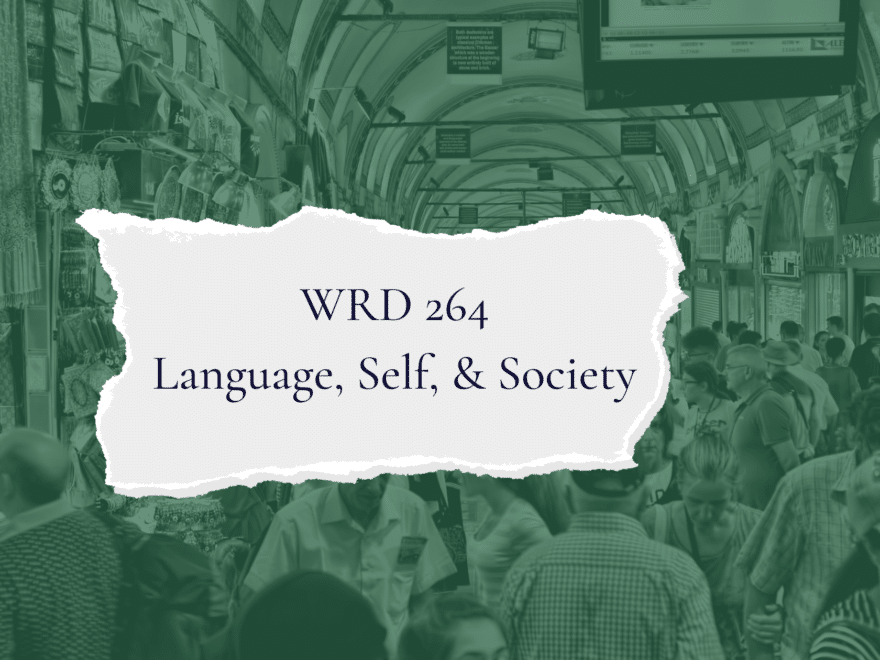Language, like humans, is social, and has a great deal of power in our world. It constructs how we live, function, and relate to other people. Language allows us to center ourselves in the world while we utilize it as a navigation tool, and Dr. Schnieder’s course delves into that dynamic relationship. The class will be taught online, and Dr. Schneider answered some questions below explaining more about what students will do and learn in WRD 264.
1. The topics of your class: language, self, and society can encompass a lot of connections and relationships, is there a primary one you are focusing on?
Not a primary one, but the topics that are most prominent are these three: language variation; language and identity; language and community.
2. Are there any primary texts or readings that will focus your class?
We have a main textbook: Tamasi, S., & Antieau, L. (2015). Language and linguistic diversity in the US: An introduction.
Other than that there is a diverse mix of individual readings. I also aim to integrate some or all of two recent popular books on language and culture: David Jurafsky’sThe Language of Food: A Linguist Reads the Menu, and Gretchen McCulloch’s Because Internet: Understanding the New Rules of Language.
3. Main projects?
Students will write a couple of informal essays, in which they reflect on language(s) in their own lives and communities; a couple of more research-based papers; and they will collaborate with peers on projects such as a discourse analysis of everyday language.
4. Do you have any learning outcomes for your students (theoretical and practical)?
Course goals from the syllabus:
- explain key concepts on a range of sociolinguistic topics, including language variation, language ideology, and multilingualism;
- describe how language practices intersect with race, gender, class, community, place, and identity;
- analyze real-world language through disciplinary methods, including discourse analysis;
- evaluate and critique popular beliefs about language with the support of academic perspectives;
- independently investigate linguistic topics through the use of scholarly resources.
5. Is there anything your students should be familiar with before taking this class so that they can succeed?
Absolutely not. I build the course in a way that does not assume background knowledge about linguistics. However, having an interest in and enthusiasm for encountering new perspectives on language make a huge difference in terms of how much you will enjoy and learn from the class. If it’s not implied in that statement, I would also say that entering into the study of language as an academic discipline requires an open mind.
6. What component of the class are you most excited for? Is one discussion topic your favorite, related to your work, or particularly meaningful?
I’ve been teaching courses on these kinds of topics for many years, for a lot of different populations of students, and I find that there is widespread curiosity about language—and a lot of personal investment in learning about it. The truth is that we all use language all the time—you could even say that we live through language—but not many people have the vocabulary to describe what’s happening with language. When students leave the class, they are able to go through their everyday lives with a new appreciation for how complicated the relationship between language and society really is. They also develop a much deeper feeling for how important language can be as part of their own identities. And, an added bonus, they might even be able to impress their friends and family with some of what they learn.
One more thing I want to add: This course can give students one of the core required credits for DePaul’s new interdisciplinary minor in linguistics. For anyone who is really interested in language, WRD 264 is a great place to start your journey, and to start earning credit towards the minor.
